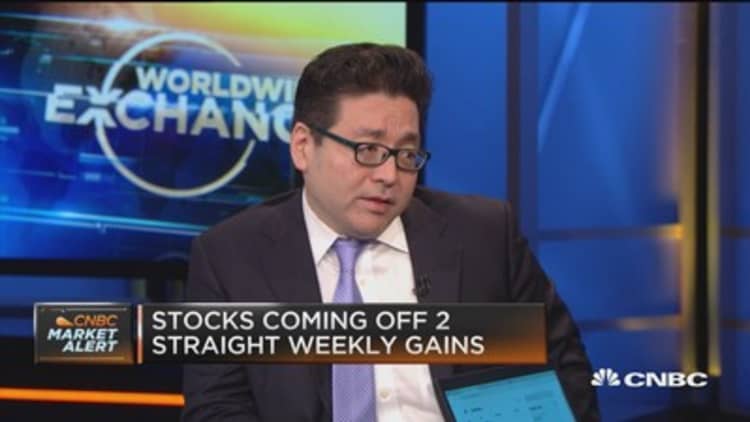Continuing worries over the impact the coronavirus outbreak will exert on economic growth have caused fund managers to cut their China GDP expectations to the lowest level in more than four years.
Investment professionals now see China's $12.2 trillion economy rising an average of just 5.2% over the next three years, according to the Bank of America Global Research Fund Manager Survey for February.
While that's a level that much of the developed world would envy, it's well off China's average quarterly gain of 6.6% over the previous three years and well below the 10.6% gain of 10 years ago. It is also the lowest outlook since September 2015.

The pessimistic view coincided with a lower though still largely positive broader outlook.
Global growth expectations fell precipitously from January, before the COVID-19 outbreak intensified, as 48% of respondents see the economy getting stronger while 29% expect it to weaken. That 19% difference is about half of what it was in January as expectations for China fell to a negative 53% from positive 50%.
'Irrationally bullish' on stocks
The Wall Street pros still see stocks rising, though they've repositioned their portfolios dramatically.
On net, respondents expect the S&P 500 to peak at 3,470 this year, a modest 2.7% uptick from Friday's close. However, that target is sharply higher from the 3,019 prediction as recently as June and is in fact the highest level since BofA started asking the question in June 2018.
Investors attribute the more positive view on equities to the likelihood that the Federal Reserve will continue to keep interest rates low. BofA noted that sentiment overall dipped in February but the firm remains "irrationally bullish" on the market due to a "full capitulation into [a] QE-forever theme," a reference to central banks' continuing to pump money into financial markets.
However, there has been a significant shift in what kind of stocks are expected to outperform.
Fund managers have pushed their allocation to growth stocks to the highest level since July 2008 as they have moved to a "deeply underweight" position in value. They also moved to their highest overweight to U.S. stocks since September 2018.
Cash levels are down to a 4% portfolio weight, the lowest since March 2013.
The survey also showed that investors continue to view this year's presidential election as the biggest threat to markets. The U.S.-China trade dispute is no longer viewed as a significant risk as to the two sides agreed to the first phase of a deal on tariffs. A potential bond bubble followed by the coronavirus represent the top challenges.



